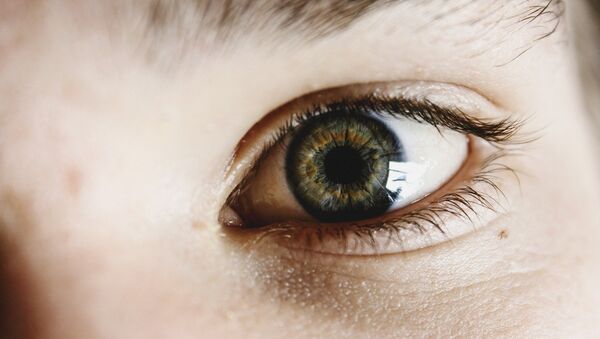Sputnik: Can you tell us a bit more about autism and the effects it has on people who are diagnosed with it?
Gianluca Esposito: Autism is a developmental disorder and as we know this is characterized by trouble with social interaction or communication and repetitive behavior. In other words this means that a person with autism spectrum disorder (ASD) has a major issue in interacting with other people. And sometimes they have a difficulty in establishing some empathetic interactions with other people. So it may be sometimes a trouble for people that encounter them because they may be not aware of the meaning of social interchanges. So any time that we try to initiate with them they may not be able to understand that behind the line of the social interactions, so they may not be able to interact fully with another person. And this can be very frustrating both for the people with autism and for the people that are interacting with the people with autism.
Sputnik: Now in your view how progressive has the campaign to embrace autism been, and learning more about the autism population?
Gianluca Esposito: I believe that the campaign has been very important and very, I think, challenging. All over the world we can see that there’s more awareness of the disorder and so if people are more aware of the disorder, they can be beneficial on two levels. The first level, it’s because more resources can be used to know more about the disorder and the mechanism. And the second level is when people are more engaged and they know more about that, they would treat people with this condition in a different way because they would know what to expect. And they would also understand that this is a condition that is very frequent in the population. So there’re many people with ASD and these people do have some knowledge and they can really have some sort of a real life.
Sputnik: Now how important is it to detect autism at an early age?
Gianluca Esposito: Scientific data in the last 20 years is that if we can have an early diagnosis, and by early diagnosis I’m referring to that diagnosis that is made before the age of two ideally within eighteen months of age, then the outcome of the disorder will be much better. So children that do get the diagnosis early are able to learn much more and they will be able to, as adults, do many more things. Like for example to find an independent job or even to have some independent life, like living alone.
Sputnik: What are the latest therapies used to help children specifically with autism?
Gianluca Esposito: There’re many different therapies that are being developed all around the world. With very young children it seems very important to train them in developing better social skills as well as focus on their modal development. We know that some children with ASD also have modal difficulties.
Sputnik: It’s also known that autism affects everyone differently. Perhaps you can just tell us specifically in more detail what that actually means?
Gianluca Esposito: The same title ASD, the same name belies the fact that this is actually not a single disorder but it’s more like a spectrum of disorders. So it means that the intensity and the variety can be very different. So we can have children that are on one end, on one side of the spectrum very severe and with severe mental retardation or on the other side of this spectrum, we may have children with ASD that are like from my cognitive point of view very able, however they do show a lot of social difficulties. So in reality the variety of the spectrum made also a very challenging perspective from the diagnostic point of view because this spectrum really can see people that are very different.
Sputnik: Perhaps you could explain to our listeners what social programs are currently supported by the international community to help people with this disorder and what else can be done?
Gianluca Esposito: All over the world there’s a lot of emphasis on really trying to make an early diagnosis and when we say an early diagnosis, as I was saying previously, we really would like to make a diagnosis during the first two years of life. But new studies have showed that probably the causes that are behind the ASD truly report to a time that is even before the birth of a child; so for sure there is an interaction between genetic and environmental factors. All over the world we’re trying to study the genetic mechanism of autism and in order to do this kind of study, it’s really important that there is a network of scientists in different places in the world collecting different samples, because in order to have enough statistical power to gain any new insight we need to test thousands and thousands of children with ASD.



